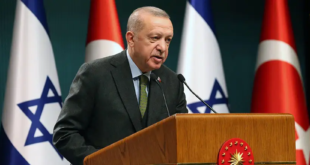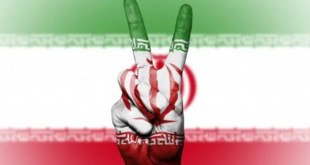“The Tehran of today poses a strategic threat to international security, to the entire Middle East and to the State of Israel.”
Israeli intelligence sources were quoted by multiple media outlets as confirming that Israel was behind a cyberattack at the Natanz nuclear facility on April 11 that knocked out power at the plant. The New York Times quoted two intelligence officials as saying it could take nine months to restore Natanz’s uranium enrichment production.
Although Israel did not officially accept responsibility, the military censor took the unusual step of imposing no censorship restrictions on local media, which explicitly credited the Mossad for the covert operation. IDF Chief of Staff Lt.-Gen. Aviv Kohavi dropped more than a hint when he said in a speech honoring fallen soldiers ahead of Remembrance Day that “the IDF’s actions throughout the Middle East are not hidden from our enemies’ vision.”
Prime Minister Benjamin Netanyahu appeared to be referring to it when he told a 73rd Independence Day toast that “the fight against Iran and its proxies and the Iranian armament efforts is a giant mission. The situation that exists today doesn’t say anything about the situation that will exist tomorrow.”
Defense Minister Benny Gantz told visiting US Defense Secretary Lloyd Austin in Tel Aviv that Jerusalem views Washington as a key ally against all threats, including Iran. “The Tehran of today poses a strategic threat to international security, to the entire Middle East and to the State of Israel,” said Gantz, who called for an inquiry into who leaked the report to the media.
The Natanz attack appears to have been designed to counter Iran’s efforts to put pressure on the US as it mulls a return to the 2015 nuclear deal. It notably came a day after Iran’s President Hassan Rouhani inaugurated new centrifuges at Natanz and on the day Austin landed in Israel on the first high-level visit by a member of the Biden administration. “I’m committed to continuing our close consultations on threats posed by Iran and to strengthening Israel’s security,” Austin said.
It also occurred while delegates from Iran, China, France, Germany, Russia, and the UK concluded the opening week of nuclear negotiations in Vienna.
On the one hand, the Natanz attack is an important development, as is the message it conveyed. Iran’s nuclear plans must be stopped, and world powers cannot give Tehran whatever it wants in nuclear negotiations. On the other, the leaks to the media do not benefit Israel.
In the past, classified operations were kept under wraps, allowing Israel to operate with impunity and carry out successful missions without boasting about them.
Preemptive strikes that were carried out by Israel on nuclear facilities in Iraq in 1981 and Syria in 2007 are good examples in which public officials kept silent for years and there were no deliberate leaks to the media.
Leaking claims of a cyberattack – or any other clandestine operation – is a clear break with tradition. And if politicians talk, then it’s also difficult to separate the military action from the current political turmoil in the country.
There is also the danger of Israel’s enemies carrying out retaliatory action. Rouhani said Tehran’s decision to boost uranium enrichment to 60 percent following the attack was in response to Israel’s “nuclear terrorism,” while Foreign Minister Mohammad Javad Zarif vowed “revenge against the Zionists.”
Israel’s security cabinet convened on April 18 to discuss Iran, and ministers voiced concern that the US wants to strike a deal “at all costs.” With regard to Natanz, Israeli officials may have gone too far this time in saying too much, too soon. They would do well to remember the dictum made famous by Tuco the Ugly in The Good, the Bad and the Ugly: “When you have to shoot… shoot! Don’t talk.”
 Eurasia Press & News
Eurasia Press & News




